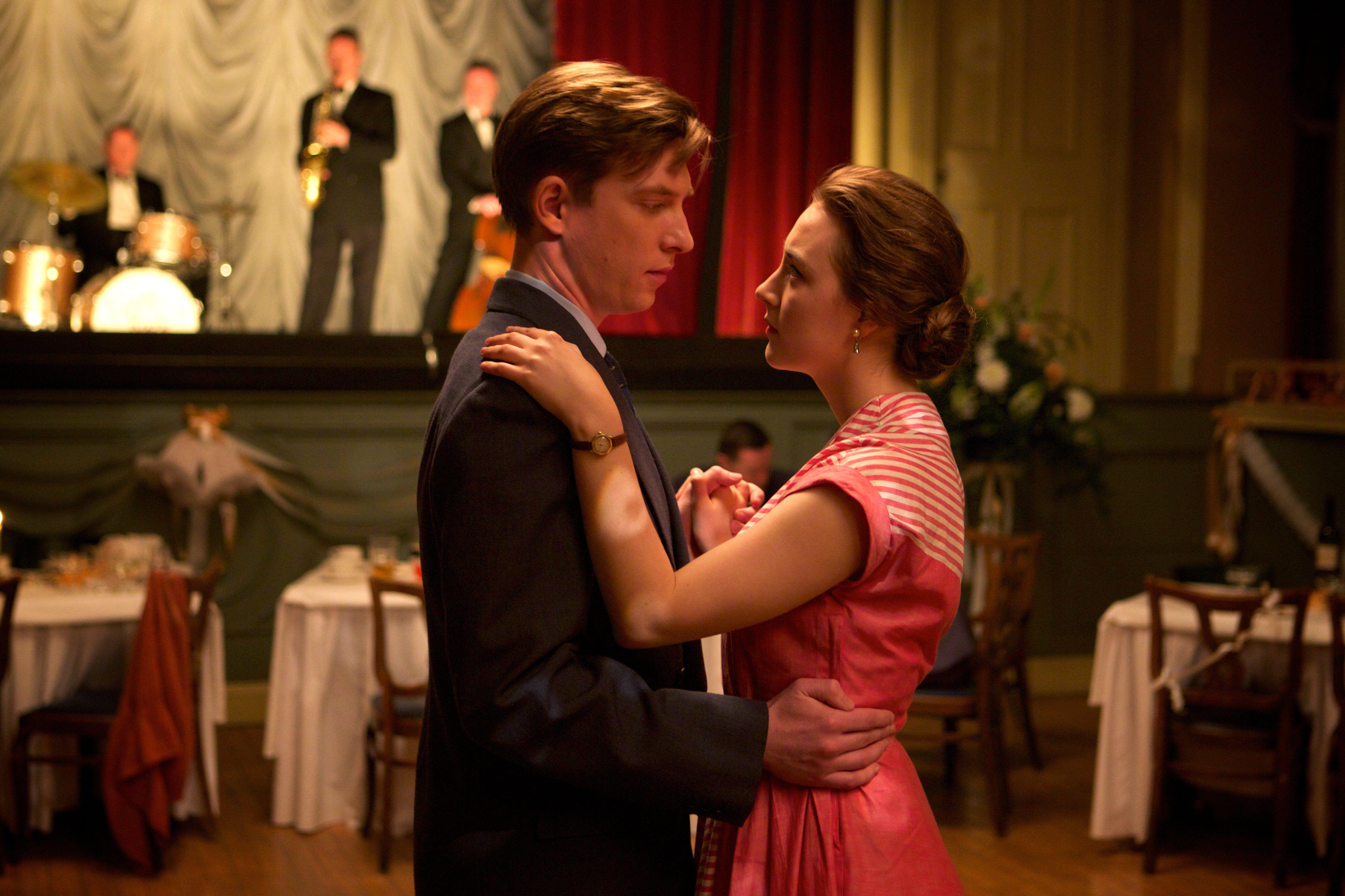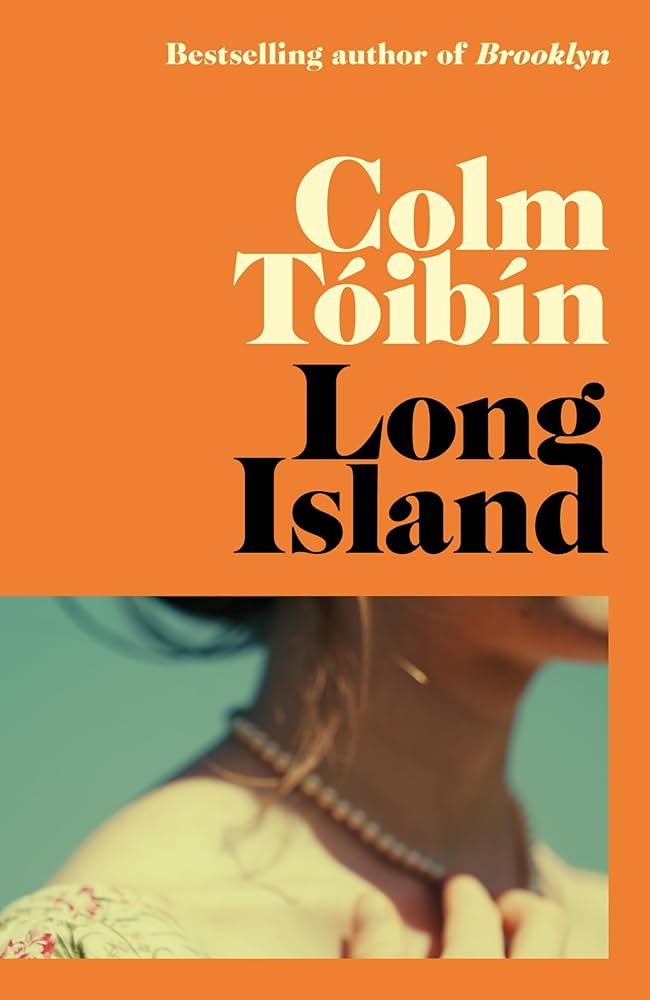Colm Toibin’s remarkable sequel to Brooklyn is a lesson on tortured regret in middle age
Can we ever return to the past or renew a lost love? These are the central tenets of the Irish author’s latest novel – a pacey read that revisits some much-loved characters tackling some of life’s big questions, writes Robert McCrum


Colm Tóibín, a brilliant and congenial figure in the Irish literary landscape, is also a student, and teacher, of the classic English novel who’s become – shall we say – affectionately obsessed with its subtle inner workings and ageless storytelling imperatives.
When I interviewed the author in 2009 following the publication of his revered novel Brooklyn, which charts the love, loss and life choices of young Irishwoman Eilis, I found Tóibín to be full of zeal for a return to first principles. “Look at Austen,” he declared. “In her novels, you get a dance, followed by an encounter, followed by a letter, then a period of solitude. No flashbacks and no backstory.”
As if reproving his literature students, he exclaimed, “Let’s have no more backstory! Can we please have no more ‘I’d like to know more about...’?” In such a vein, a Tóibín lecture sounds like a bracing experience, from which many an English creative-writing course might profit, and one that underpins his most recent fiction.
First in Brooklyn, and now in Long Island, Tóibín has conducted an exhilarating masterclass in extracting the maximum effect from the minimum of prose, with the leanest and cleanest narrative line. His characters are notable for the energy they put into not saying what they feel. They have their autonomy on the page, but they are also his puppets.
Tóibín knows, and feels, his subject inside out. Here, we also find him indulging his love of classic fiction by exploring one of its hallmark genres, the sequel. Spoiler alert: when the novelist brings Eilis back to the complications of Ireland, revisiting an old scenario is not without its perils, for either author or subject.
Long Island rediscovers Eilis Fiorello (nee Lacey) in middle age. Her life has moved from Brooklyn to an Italian-American milieu that’s more sober than metropolitan New York, but all is not well. Long married to Tony Fiorello, she is confronting the shocking and unequivocal evidence of her husband’s infidelity, a blow that will propel her back to the County Wexford town of Enniscorthy, ostensibly for her mother’s 80th birthday.
This is Tóibín’s own hearth, to which his fiction returns for supercharged emotion. In bold, broad strokes and thrilling clarity, Long Island becomes the unforced narration of another archetypal tale, but less con brio than hitherto. “When you get to my age,” says Eilis. “You love time on your own.”

Tóibín delights in a story that could have been whispered over a pint of Guinness, with fathoms of darker consequences. His experience of filmmaking has also left its mark. Just as Brooklyn became a highly successful movie (starring Saoirse Ronan and Domhnall Gleeson) so Long Island unfolds with cinematic momentum, in snatches, as if sketching a movie scenario.
Eilis, stunned by the betrayal on her doorstep, goes home – like any Irish wife in extremis – to her friends and relations. Here, too, the novelist is mining that old Victorian seam of narrative gold, the secrets of married life. This is especially audacious for being conducted in a more or less continuous present (the early 1970s) in which Long Island’s “backstory” emerges through terse expressions and edgy asides.
Happily, there’s nothing reticent about Tóibín’s description of Eilis’s rediscovery of Ireland. Where his Long Island remains opaque and slightly alien, this return to Enniscorthy is rich in nuance and conversation. Old “Mrs Lacey”, who takes her daughter’s troubles in her stride, is a comic creation worthy of Jane Austen. In this territory, Tóibín narrates quickly and confidently, carrying his plot in tantalising, oblique dialogue but always writing as though he knows exactly where he is, both in landscape and story, unfolding at pace in seven roughly equal parts.
We watch Eilis growing cold towards the betrayals of Long Island before allowing herself to rekindle her feelings for Jim the publican, the man she left behind when – to local scandal – she married Tony Fiorello. But it is her husband’s betrayal and its consequences that really drive the plot. Tony’s affair produces a child, and, once it is born, the story moves fortissimo towards a fully orchestrated climax.
In Brooklyn, Eilis had to wrestle with a terrible dilemma: the choice between her greatest love and a new life in a new world. In Long Island, the consequences of that choice become the agony of regret that afflicts the middle age of Tóibín’s protagonists.
Can we ever, Tóibín asks, actually return to the past? In his portrait of a lost hometown, he does not hesitate to wheel out some old favourites. Nora Webster, for instance, the protagonist of his 2014 novel of that name, makes a cameo appearance, joining the women who will ponder that great question: can we renew a love that seemed forever lost?

And then there’s Jim Farrell. Here, Tóibín executes a sleight of hand, shifting our focus from the wronged wife to the deserted lover, as Long Island becomes Jim’s story, too. He’s now in an on-off relationship with the widow Nancy Sheridan, one of Eilis’s oldest friends, and the scene explores the agonising vicissitudes of a classic love triangle.
In the rituals of an encore, Long Island echoes the emotional chemistry of Brooklyn, subjecting a familiar cast of characters to new and troubling anxieties. It seems more conventional, however, and less innovative, perhaps because so much of its exposition revolves around Farrell.
Less sympathetic than Eilis Lacey, he becomes the fulcrum of the plot. Furthermore, his bungled dalliances, two-timing Nancy and Eilis, do not exactly enhance his claim on our sympathy, despite their comic undertones. While we are presented with a tour de force of compelling dialogue within this triangle, it seems questionable that, within this close-knit Irish town, the two women, Eilis and Nancy, could remain so comprehensively in the dark.
These are just quibbles, though, and this is a novel that stands as an example to any aspiring writer who has still to learn that less is more. And yet Long Island, in closing, refutes that lesson. Farrell’s indecision about where his heart lies leaves the reader in limbo, offering Tóibín the opportunity for a third outing.
Does it, you wonder, help such a sequel that its author should be in thrall to his characters and their milieu? In Long Island, Tóibín seems reluctant to challenge some of the assumptions that underlie his story. In the past, he’s never been afraid to dive deep. His gifts are so remarkable, it’s hard not to wish that he would perhaps make a bigger splash with whatever his next fiction might be.
‘Long Island’ by Colm Tóibín (£20, Picador) is available to order now






Join our commenting forum
Join thought-provoking conversations, follow other Independent readers and see their replies
Comments